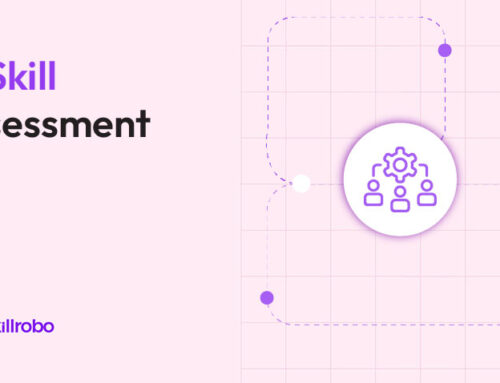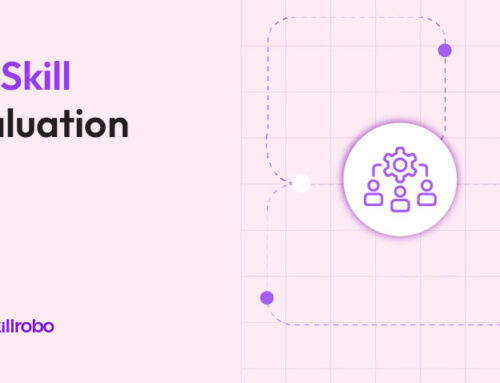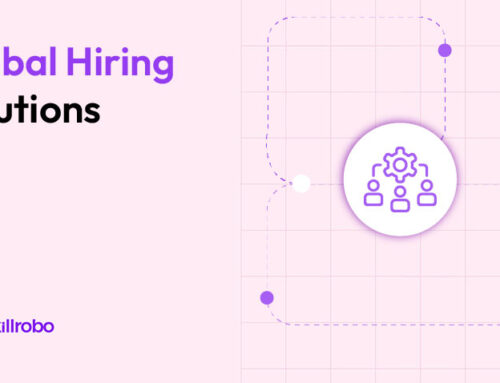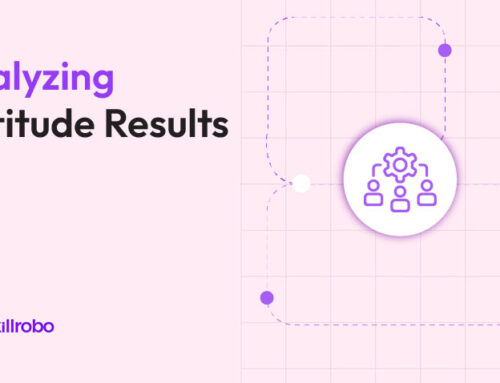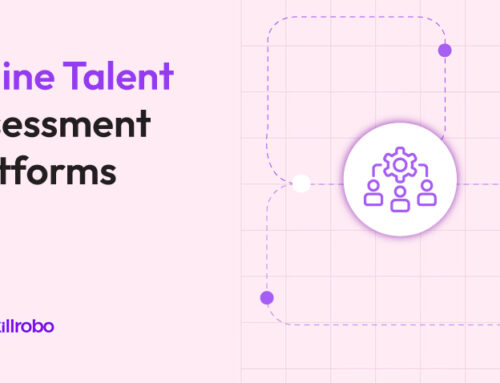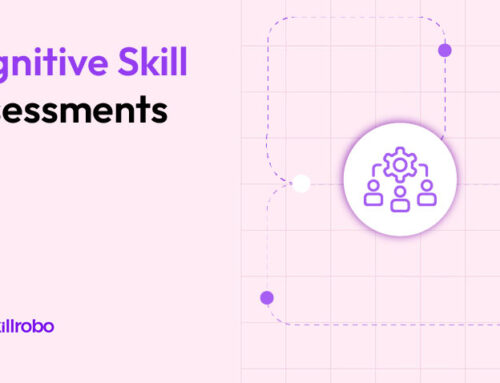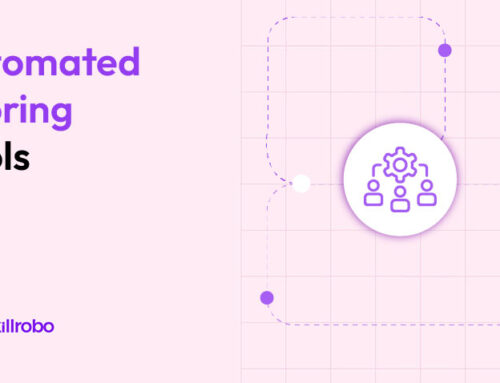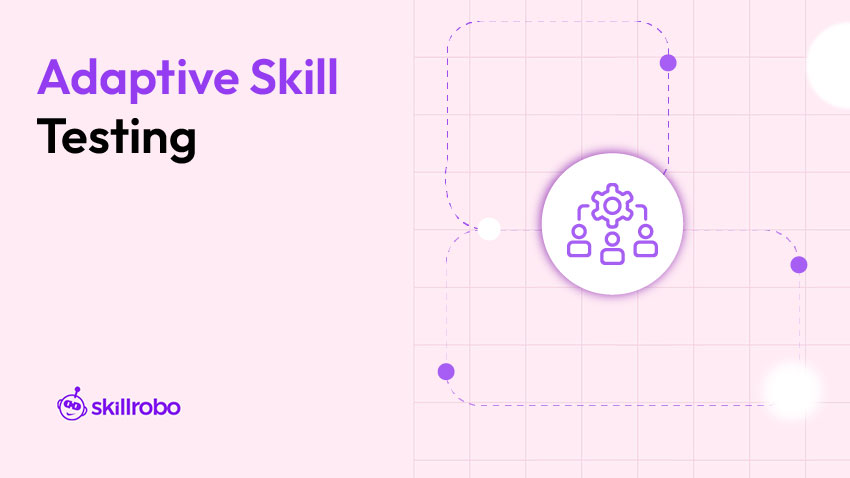
Key Takeaways
- Adaptive testing dynamically adjusts question difficulty based on candidate performance, offering precision and efficiency.
- Organizations benefit from faster, more accurate assessments without compromising candidate experience or evaluation depth.
- Adaptive difficulty reduces test anxiety by aligning questions closer to each candidate’s ability level.
- Leading companies increasingly use adaptive assessments to improve hiring quality, reduce time-to-hire, and enhance scalability.
Introduction: Precision Hiring with Adaptive Assessments
Static online tests often fail to differentiate top performers from average candidates, especially in large applicant pools. Traditional formats either oversimplify or overwhelm, missing crucial nuances in skill evaluation.
Adaptive talent assessments change that. By adjusting question difficulty in real-time based on each response, these platforms provide a smarter, more efficient way to measure a candidate’s true capabilities. Recruiters gain deeper insights in less time, while candidates experience fairer, more engaging assessments.
In this blog, we explore how online talent assessments with adaptive difficulty levels are reshaping modern hiring practices.
Understanding Adaptive Testing in Online Assessments
In traditional assessments, every candidate receives the same set of questions, regardless of their skill level. This static approach often leads to inefficiencies, either overwhelming candidates with overly difficult questions or underestimating top performers.
Adaptive testing, also known as Computerized Adaptive Testing (CAT), personalizes each candidate’s journey. When a candidate answers correctly, the test adapts by increasing the difficulty; if a candidate struggles, it adjusts by serving slightly easier questions. This real-time adjustment ensures that the assessment quickly identifies the candidate’s true ability level with fewer questions.
Organizations using adaptive assessments gather deeper insights without exhausting candidates or compromising test quality. Companies looking to build a pre-employment skill assessment checklist often integrate adaptive testing to ensure fairer, faster, and more reliable candidate evaluations.
Pro Tip: Adaptive testing doesn’t just measure knowledge—it evaluates how a candidate thinks, responds to challenges, and adapts under pressure.
Why Adaptive Assessments Outperform Traditional Testing Methods
Adaptive assessments bring a significant edge over fixed-form tests, especially in today’s dynamic hiring environments where precision and speed matter.
Higher Efficiency
Candidates quickly reach their optimal difficulty level, resulting in shorter, more focused assessments. Instead of spending unnecessary time on irrelevant questions, recruiters can measure critical skills faster and more accurately. Organizations adopting pre-employment assessments for entry-level positions often rely on adaptive tests to streamline high-volume screening.
Improved Candidate Engagement
Adaptive tests feel more natural to candidates because the difficulty matches their ability level. This balance keeps candidates motivated and reduces drop-offs during assessments. A smoother experience reflects positively on the employer brand, especially important for tech-savvy, remote-first talent pools.
Reduced Guesswork
In static tests, candidates can often guess their way through easier questions. Adaptive logic minimizes this risk, as consistent guessing would quickly surface in performance patterns. Companies focused on reducing bias in hiring assessments find adaptive models more reliable for producing authentic evaluations.
Enhanced Accuracy
Adaptive tests zoom in on a candidate’s true competency level without lengthy assessments. This precision enables better hiring decisions, ensuring that only genuinely qualified candidates progress to the next stages.
Organizations like IBM and Accenture have embedded adaptive strategies into their hiring pipelines to identify top performers quickly and reduce time-to-hire in critical roles.
Key Components of an Effective Adaptive Talent Assessment Platform
Adaptive testing has become a sought-after solution for modern hiring challenges, but not every platform claiming “adaptive features” actually delivers meaningful results. True adaptive assessment platforms go beyond basic difficulty adjustment—they are engineered to personalize the testing experience, gather deeper skill insights, and ensure data-driven hiring decisions.
To fully unlock the benefits of adaptive assessments, recruiters must select platforms that blend intelligent design, robust content libraries, and powerful reporting capabilities. In this section, we explore the core components that define a high-quality adaptive talent assessment system and how they contribute to more accurate and efficient hiring outcomes.
| Component | Importance |
|---|---|
| Dynamic Question Bank | Large, well-tagged database for smooth difficulty scaling. |
| Real-Time Scoring Algorithms | Immediate difficulty adjustments based on candidate responses. |
| Skill Benchmarking Capabilities | Ability to correlate scores against industry standards or internal success profiles. |
| Data-Driven Feedback | Actionable reports highlighting candidate strengths, weaknesses, and consistency. |
| Mobile Compatibility | Ensures candidates can complete assessments seamlessly across devices. |
Industries Benefiting Most from Adaptive Talent Assessments
While adaptive assessments are often associated with technical hiring, their benefits extend far beyond tech-driven roles. Several industries now leverage adaptive models to refine hiring accuracy, reduce assessment times, and ensure better cultural and role fit.
Healthcare
In healthcare, where clinical reasoning and rapid decision-making are critical, adaptive assessments help evaluate candidates’ ability to process complex information under pressure. Medical organizations use these tools to test diagnostic skills, ethical judgment, and patient care scenarios more effectively.
Financial Services
Financial roles demand high levels of problem-solving, numerical reasoning, and critical thinking under tight timelines. Adaptive assessments in banking, investment, and insurance sectors help screen candidates who can operate confidently in fast-paced, high-stakes environments.
Sales and Marketing
Sales and marketing roles require exceptional communication skills, adaptability, and persuasive negotiation abilities. Adaptive testing ensures that assessments remain dynamic, adjusting based on how candidates handle situational challenges. Companies developing soft skills assessment tools increasingly integrate adaptive elements to measure these competencies more accurately.
Engineering
Engineering assessments must evaluate both theoretical understanding and practical application. Adaptive formats allow for tailored questioning based on specialty, whether in software, mechanical, or civil engineering, making evaluations more precise without unnecessary testing fatigue.
Leading companies like Deloitte and Johnson & Johnson are exploring adaptive testing models to better identify candidates who can thrive in complex, continuously evolving environments.
Common Challenges with Adaptive Testing (and How to Solve Them)
While adaptive assessments offer strategic advantages, their implementation can bring certain challenges if not managed carefully. Anticipating and addressing these concerns early ensures a smoother rollout.
Test Anxiety
Candidates unfamiliar with adaptive formats may feel increased pressure when question difficulty fluctuates. Without proper communication, anxiety could impact performance and skew results.
Solution: Always provide clear, upfront instructions and offer practice tests to acclimate candidates to the adaptive format. Platforms that guide users through tips for implementing online assessments are more likely to reduce friction and build candidate confidence.
Question Bank Quality
A strong adaptive system relies on a large, diverse, and well-tagged question bank. A weak or outdated pool can lead to uneven testing experiences and inaccurate ability measurement.
Solution: Refresh and expand question libraries regularly, ensuring that each question is skill-mapped correctly to support smooth adaptation throughout the test.
Interpretation Complexity
Adaptive scoring can seem complicated to recruiters unfamiliar with the format. Poorly explained results can delay hiring decisions or cause misinterpretations.
Solution: Select platforms that offer visual, categorized reports for easier understanding. Solutions that provide employee assessment software with intuitive dashboards make it simpler for hiring managers to act quickly and confidently.
Skillrobo: Simplifying Adaptive Skill Assessment at Scale
Skillrobo is a dynamic pre-employment assessment platform that enables companies to create smarter, adaptive evaluations customized for specific job roles. Rather than relying on generic tests, organizations can build assessments that blend technical, cognitive, and behavioral competencies while adjusting difficulty levels to match candidate responses.
Powered by SEYARC AI, Skillrobo also automatically recommends questions for emerging or niche skills, ensuring that assessments stay aligned with evolving job market demands. To maintain assessment credibility, the platform includes robust anti-cheating measures such as webcam monitoring, browser tab detection, and real-time activity tracking, providing recruiters with greater confidence in the authenticity of candidate performance.
Beyond its powerful assessment capabilities, Skillrobo delivers instant, categorized reporting that highlights candidate strengths, developmental areas, and overall readiness for the role. Recruiters can quickly identify top performers without getting lost in manual score analysis. The platform’s ease of access further enhances the candidate experience, offering public URL test links and mobile optimization for seamless participation across devices and locations. By moving beyond static testing formats and embracing adaptive models, Skillrobo empowers organizations to hire smarter, faster, and with greater precision in today’s competitive global talent market.
Conclusion: Future-Proof Hiring with Smarter Assessments
Adaptive talent assessments are redefining how organizations identify, evaluate, and onboard top talent. By moving beyond static testing methods, companies can deliver more engaging candidate experiences, gain deeper skill insights, and make faster, more confident hiring decisions. Platforms like Skillrobo make it simple to integrate adaptive testing into recruitment strategies, helping businesses build stronger teams with greater efficiency and precision.
Sign up for Skillrobo today to transform your hiring process with smarter, adaptive skill assessments.
Table of content
- Introduction: Precision Hiring with Adaptive Assessments
- Understanding Adaptive Testing in Online Assessments
- Why Adaptive Assessments Outperform Traditional Testing Methods
- Industries Benefiting Most from Adaptive Talent Assessments
- Common Challenges with Adaptive Testing (and How to Solve Them)
- Skillrobo: Simplifying Adaptive Skill Assessment at Scale
- Conclusion: Future-Proof Hiring with Smarter Assessments



